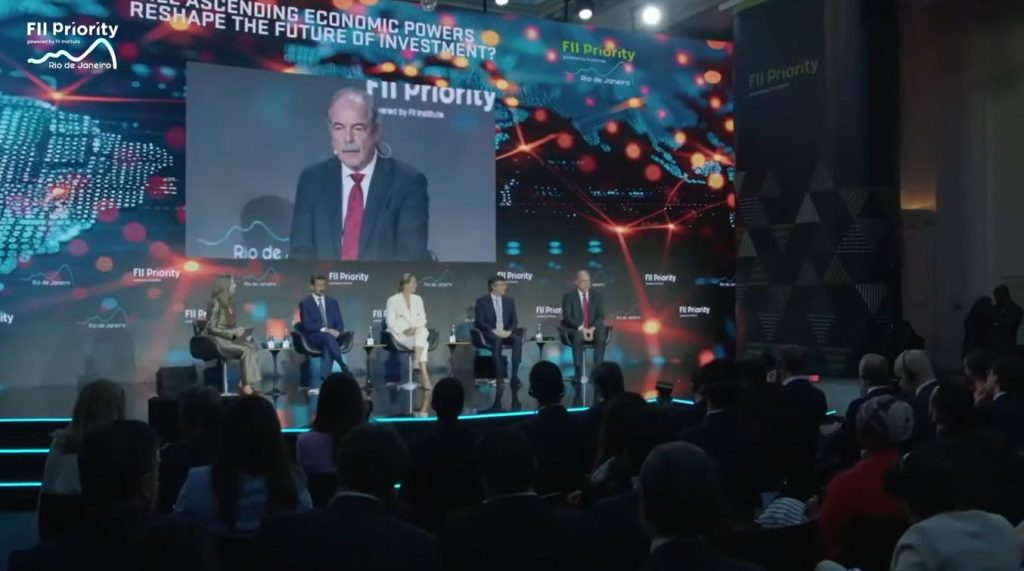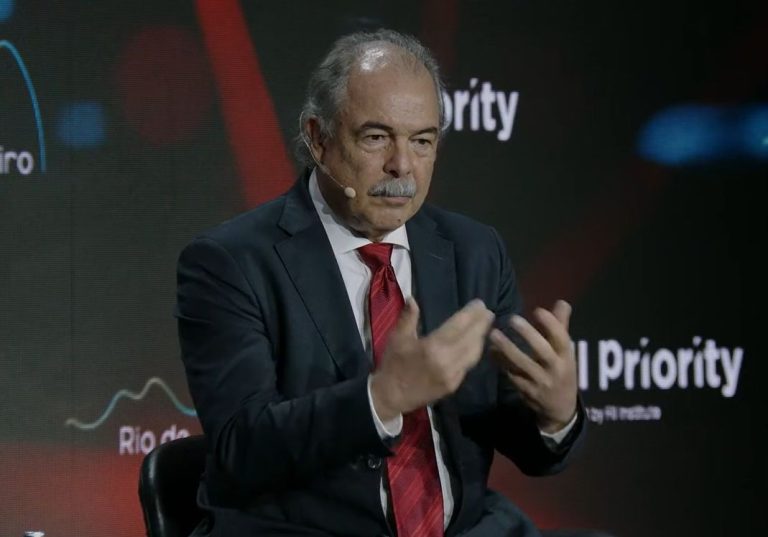Rio de Janeiro – In a bid to attract investment and partnerships from Gulf region entrepreneurs and sovereign funds, Aloizio Mercadante, the Brazilian state development bank BNDES, highlighted Brazil’s economic potential and vast green energy opportunities. Mercadante’s remarks came during the FII Priority event in Rio de Janeiro on June 12 and 13.
He emphasized Brazil’s ambitions in the energy transition, leveraging its unique assets: the world’s largest rainforest and abundant water resources. “These resources position Brazil perfectly for data centers, clean energy production, and participation in the AI revolution,” Mercadante declared, noting that Brazil is already the second-largest recipient of direct investment, boasting “the cleanest energy matrix within the G20”, with 47% of its energy coming from renewable sources.
Mercadante participated in a 30-minute panel discussion titled “Will Rising Economic Powers Redefine the Future of Investment?” which explored the changing landscape of global investment as emerging economies gain greater influence.

The BNDES representative criticized the nations of the so-called Global North. “We are increasingly facing heightened commercial protectionism from industrialized countries,” he said. According to Mercadante, “more discussion between the North and the South is needed,” as well as “more partnerships in the displacement of production chains and greater integration of the global South’s production chains”.
Urging investors to “choose Brazil,” the president of BNDES presented the nation to Gulf region investors as open to investment and business partnerships. “Amidst geopolitical changes, tensions, and war, this is a country that has not had a war with any neighbor for 150 years. There are only fifteen countries in the UN that have relations with all other nations, and Brazil is one of them. This is a country of peace, which wants dialogue, partnerships, and bridges,” said Aloizio Mercadante.
Alongside the BNDES president, speakers such as Ahmed AlKhatteb, Minister of Tourism from Saudi Arabia, and André Esteves, Chairman & Senior Partner of BTG Pactual, discussed how these rising economic powers are shaping investment trends, creating new opportunities for global investors, and redefining the dynamics of international capital flows.
Brazil has conditions to lead energy transition
Rafael Solimeo, the head of the Arab-Brazilian Chamber of Commerce (ABCC) office in Dubai, who is at the FII alongside other representatives from the institution, told UAE state news agency WAM that Brazil has “excellent structural conditions to lead the energy transition, with the country having ample availability of decarbonized energy in more than half of its energy mix, including the use of fossil fuels.”
Solimeo also emphasized that the Brazilian market can produce sustainably. “[Brazil] also has different biomes, besides the Amazon, that hold what is perhaps the greatest biodiversity heritage of humanity. The country also has efficient food production chains that adopt the best sustainable practices available to the market and is one of the few in the world that can grow without cutting down a single tree,” he concluded.
The FII Priority Summit brings together global authorities alongside business leaders from various sectors and addresses urgent issues under the theme “Investing in Dignity.” On its first day, the event gathered over 1,500 delegates who participated in sixty-six sessions with more than 190 speakers.
Read more:
Lula urges recognition of Saudi Arabia, Brazil
Arab-Brazilian Chamber backs FII Priority in Rio
Translated by Guilherme Miranda




